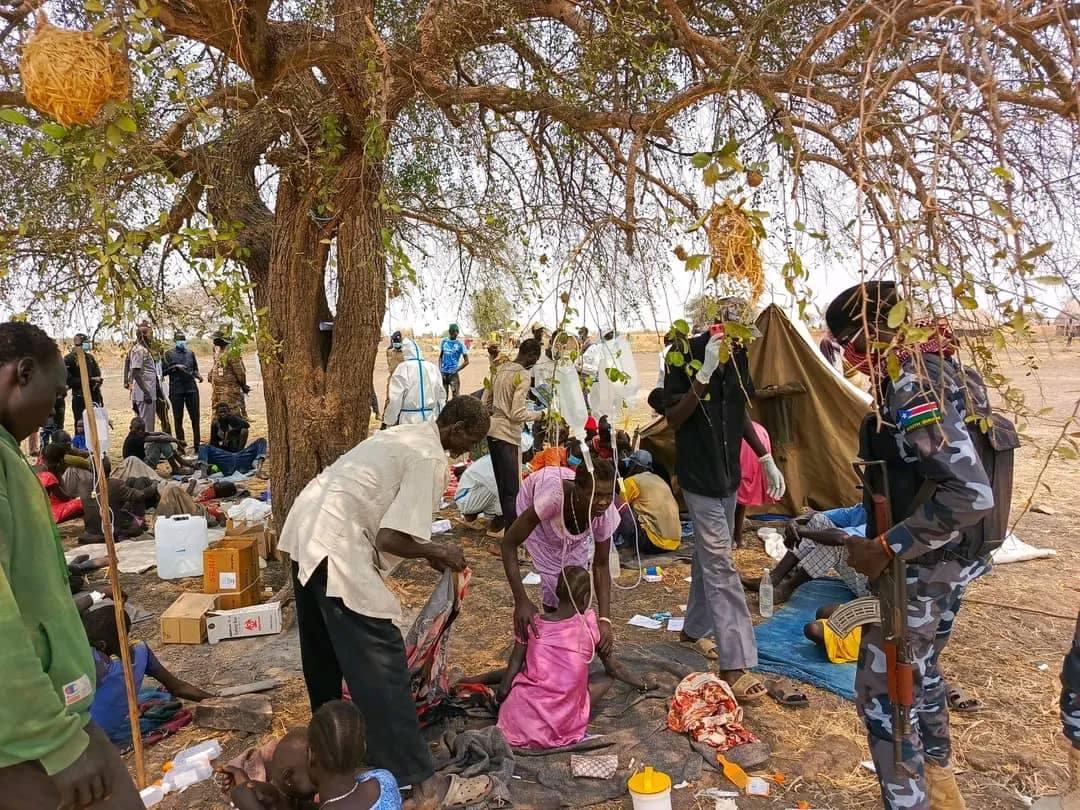Africa-Press – South-Sudan. The National Ministry of Health said the cholera emergency is still on the rise with new suspected cases in Kapoeta South in Eastern Equatoria, Wau in Western Bahr el Ghazal and confirmed outbreaks in Tonj North and Gogrial West in Warrap State.
South Sudan first declared the outbreak in October 2024 after recording cases in Upper Nile State – which has become a major transit point for refugees and returnees from Sudan. The crisis has rapidly spread across the country.
Dr. Kediende Chong, Director General for Preventive Health Services and Emergency Response, said the ministry’s rapid response team is currently in the affected locations to respond to the outbreak.
“Cholera in the country is still on the rise with newly confirmed locations including Kapoeta South,
in which we received alerts of suspected cases,” he narrated.
“We have also received alerts of suspected cases in Wau, but we have confirmed outbreaks in Tonj North and Gogrial West. The rapid response team supplied to Tonj North and Gogrial West left over the weekend. Hoes are the new locations.”
However, Dr. Chong did not highlight the number of confirmed cases or deaths reported in the new outbreak hotspots.
He only said the health ministry has so far recorded a cumulative total of 51,000 confirmed cases and over 900 deaths across the country as of April 23.
“I want to confirm to you that the total number of cholera outbreak cases as per our last Thursday report is 49,584 and 930 deaths. As of today, we have not yet shared the update, but we are at around 51 thousand cases across the country.”
Medical aid group MSF has said persistent chronic gaps in healthcare, funding cuts, dire water and sanitation conditions and gaps in other essential services in South Sudan have also created the perfect conditions for cholera to spread.
MSF has added that violence in the Upper Nile State is worsening the cholera outbreak as it hinders access to medical care for several remote villages where people nurse the disease at home without lifesaving oral rehydration solutions.
And on April 19, Save the Children said five children with cholera were among eight people who perished while on a three-hour difficult journey to seek medical treatment in Akobo County in Jonglei State, following the closure of their local health services over lack of funding.
Dr. Chong further pointed out some progress in containing the outbreak with previous hotspots in Unity state and Pibor administrative areas have reported a reduction in Cholera cases.
“We are also seeing some of the previous hotspots reporting fewer cases. For example, Unity state has reported as low as 55 cases in the whole state, which shows progress has been made in controlling this outbreak.”
“Five out of seven counties have reported no new cases and zero deaths. We have also seen Pibor with a lower number of cases being reported, with areas such as Likuangole reporting zero cases since last week.”
Cholera is an acute diarrheal infection caused by consuming food or water contaminated with the bacterium Vibrio cholerae, according to WHO, which classifies it as a global public health threat and indicates inequity and lack of social and economic development.
The UN health agency says access to safe water, basic sanitation and hygiene is essential to prevent cholera and other waterborne diseases.
Most people with cholera have mild or moderate diarrhea and can be treated with oral rehydration solution (ORS).
However, the disease can progress rapidly, so starting treatment quickly is vital to save lives. Patients with severe diseases need intravenous fluids, ORS and antibiotics.
Preventing and controlling cholera involves a combination of strengthening surveillance, improving water, sanitation and hygiene, increasing risk communication and community engagement, improving access to quality treatment and implementing oral cholera vaccine campaigns.
For More News And Analysis About South-Sudan Follow Africa-Press






